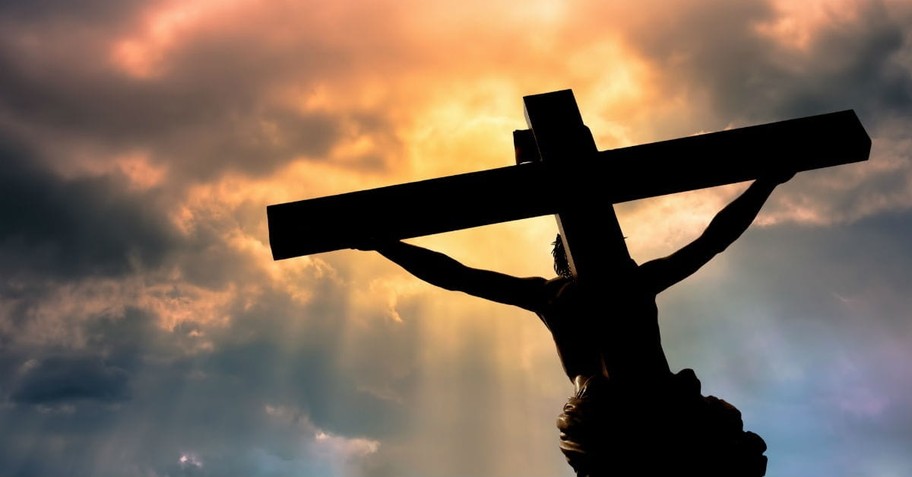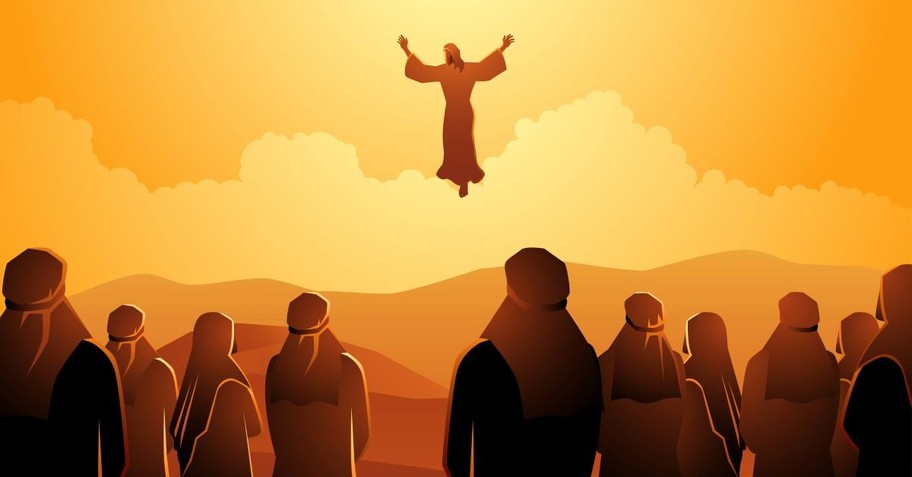4 Reasons Jesus’ Disciples Doubted the Resurrection at First

Jesus warned the disciples more than once about the future suffering He would endure. He told them He would die and rise again on these three instances:
Matthew 16:21; Mark 8:31; Luke 9:31-32
Matthew 17:20-23; Mark 9:30-32; Luke 9:43-45
Matthew 20:17-19; Mark 10:30-34; Luke 18:31-34
Hours before Jesus’ arrest the twelve shared the Passover meal with their Master. He relayed to them that the meaning of the cup was His blood of the New Covenant. While at the table, He told them a betrayer sat nearby. They were concerned about this sad fact for a little while, but a short time later they were so focused on themselves they argued about who would be the greatest (Luke 22:24).
Another time upon hearing these words about what lay ahead for their Lord, Peter scolded His Savior for saying such a thing. Jesus rebuked Peter for using Satan’s words to get His focus off the fulfillment of God’s will (Matthew 16:22-23).
Despite Christ’s warnings, His followers, like the rest of Israel, waited for a Messiah with military might. The Israelites conquered other nations and entered the Promised Land through war. Their history involved conquering and being conquered. Centuries later, when the Romans ruled over their country they assumed their long-awaited Messiah would rescue them through armed conflict.
The Master Teacher tried to prepare His companions for what lay ahead. But they couldn’t even stay awake to pray with Him in the Garden of Gethsemane.
After His death and resurrection, they received messages telling them He was alive, but they refused to consider the truth.
Here are 4 reasons why they doubted the reports.
Photo Credit: ©GettyImages/Boonyachoat
1. They Were Too Familiar with His Humanity
The Son of God showed up on the earth as the Son of Man. He didn’t stand out from the crowd, float above the ground, wear a halo, or sit on a throne in Jerusalem.
The people didn’t expect this plain Messiah. That’s why it was so hard for some to accept Him.
Citizens of Nazareth watched Him grow up. They thought of Him as Joseph’s son.
They said, “Is not this Jesus, the son of Joseph, whose father and mother we know?” (John 6:42 NIV)
Familiarity prevented His hometown residents from believing He was the Savior.
The disciples walked and taught with Him for three-and-a-half years. They saw the Father’s Son in a physical body. They saw Him tired and dirty. The group ate, camped out, and traveled together. Other than the miracles the Galilean performed, He sustained life in a normal manner.
They knew He was the Son of God, yet He was so like them in humanity. Except when He was interacting with crowds and healing the sick or casting out demons, it may have been easy for the deity side of Him not to be at the forefront in their daily lives together.
2. They Were Too Focused on the Natural
Their minds did not always perceive the spiritual reason the Almighty sent His Son to earth.
Christ’s supporters saw miracles unlike any the world had ever experienced before. But as soon as the miraculous was over they reverted to their constrained way of thinking.
A few hours after the loaves and fish multiplication they struggled through a storm and thought a ghost walked on the water until their Redeemer called out to them (Matthew 14:25). At least Peter reverted to faith momentarily and got out of the boat to walk toward His Master on the water.
The second time they were in the same predicament where a crowd needed food, they didn’t refer to the previous miraculous expansion of bread and fish for they still wondered what to do.
His disciples answered, “Where could we get enough bread in this remote place to feed such a crowd?” (Matthew 15:33)
Except for the event on the mountain where Peter, James, and John watched as the Son of Man transfigured into the glory of the Son of God, His body was as natural as theirs. They knew He was divine, but they still had to deal with the flesh and blood limitations of His humanity.
Mary Magdalene and the Nazarene’s mother went to the cemetery on Sunday to anoint His body. Their concentration was on the grave, not a resurrected person. They wondered how they could move the stone from the entrance of the sepulchre (Mark 16:1-3)

3. They Didn’t Understand His Mission
The Pharisees wanted to put a guard at the burial chamber because they remembered what their nemesis said about rising from the dead. All the miracles and teachings the Lord did was not enough to sway the Jewish leaders to regard Him as the Messiah, but they wanted to ensure a trick didn’t transpire to make His words viable.
His band of brothers either didn’t remember what He said, or they just didn’t get the meaning.
They knew He came to save the lost, but they still waited for the glorious defeat of the Roman empire.
His own brothers thought He was crazy. And Mary too wondered if this is how he was to fulfill His mission.
When his family heard about this, they went to take charge of him, for they said, “He is out of his mind.” (Mark 3:21)
Flogging massacred His flesh. John is the only one who was at the cross and watched Him die, but the others knew what crucifixion did. The darkness of a grave enclosed His corpse.
Wasn’t the Messiah supposed to be their great leader who would free them from bondage?
Heaven’s miracle worker raised others from the dead, so why didn’t He stop what happened? Now all they saw was a stone in front of the tomb’s entrance.
They didn’t understand His mission was twofold. First, He had to destroy sin by becoming the sacrificial lamb. Later He would judge the world and rule in justice on the earth.
These eleven apostles were Jewish men who also knew the scriptures and prophecies. But they didn’t rely on them to discern the Savior’s purpose.
The risen Christ told the couple from Emmaus, “How foolish you are, and how slow to believe all that the prophets have spoken! Did not the Messiah have to suffer these things and then enter his glory?” (Luke 24:25-26)
Photo Credit: ©thinkstock
4. They Were Controlled by Fear
The men all fled the scene after Jesus’ arrest (Mark 14:50). They were afraid they would be imprisoned also.
Mary Magdalene was the first one Christ appeared to after the resurrection and He gave her the task of proclaiming the good news that He was alive.
She went to the hidden followers and told them she had seen the Lord’s immortal body. They still didn’t pay attention to this eyewitness.
When they heard that Jesus was alive and that she had seen him, they did not believe it. (Mark 16:11)
Luke 24:8 gives the account that other women were with Mary Magdalene and told the apostles what had happened.
And their words seemed to them like idle tales, and they did not believe them. (Luke 24:11)
Jewish and Roman law did not equate a woman’s testimony as valid. Maybe that is why the Lord chose to appear first to women, thus nullifying the law that devalued females.
The disciples also did not accept the account of the two from Emmaus (Mark 16:13).
But finally, they decided to see for themselves. Peter and John ran to the tomb and found nothing but the linen wrap (John 20:3-7).
The Passover Lamb materialized to them in a room with a closed door. Thomas wasn’t at this meeting, and he still didn’t perceive the truth when his friends told them the risen Christ visited them (John 20:19-20).
Thomas wanted substantial proof and Divinity gave it to him on the next visit. But the Lord also told this disciple that it was better to see by faith than see with his eyes (John 20:29).
On another occasion, Jesus rebuked their unbelief when He joined the eleven while they ate.
Later Jesus appeared to the Eleven as they were eating; he rebuked them for their lack of faith and their stubborn refusal to believe those who had seen him after he had risen. (Mark 16:14)
Others saw His resurrected body and still doubted (Matthew 28:16-17). The only explanation could be hardness of heart.

Their Unbelief Didn’t Last
The disciple’s fear blinded them. They knew death was final for a human. Even though the Light of the world was God and had raised people from the dead, He wasn’t there now to raise Himself. All they saw was a dark grave that shrouded their loving Friend.
Death took away their Lord and Master. Their familiarity with Him as a Man, their fear of the Jews, mental focus on the natural world, and lack of understanding the prophecies kept His companions from accepting the resurrection at first. The King of kings Himself was the witness they needed to dispel their doubt.
But we shouldn’t be too hard on these eleven men. We may have been among the doubters too. Now we have the advantage of hindsight and over 2,000 years of biblical history.
After the Holy Spirit filled them, their boldness and witness traveled the then known world and changed history. According to tradition, all but John were martyred for their faith and message, and John was exiled because of His testimony.
They understood the message of the gospel and His redemptive purpose on earth.
Jesus performed many other signs in the presence of his disciples, which are not recorded in this book. But these are written that you may believe that Jesus is the Messiah, the Son of God, and that by believing you may have life in his name. (John 20:31)
Because of what they did the good news came to us. Despite the emperors, dictators, atheists, and agnostics who have attempted to disprove the Bible and wipe out Christianity, the Word of God still thrives.
So is my word that goes out from my mouth: It will not return to me empty, but will accomplish what I desire and achieve the purpose for which I sent it. (Isaiah 55:11)
We can take the words Christ said to Thomas for ourselves. We can’t see Him now with our eyes, but we can trust because we see with our hearts. The scriptures themselves are our testimony that He is risen just as He said!
Photo Credit: ©GettyImages/rudall30
Originally published April 06, 2023.






